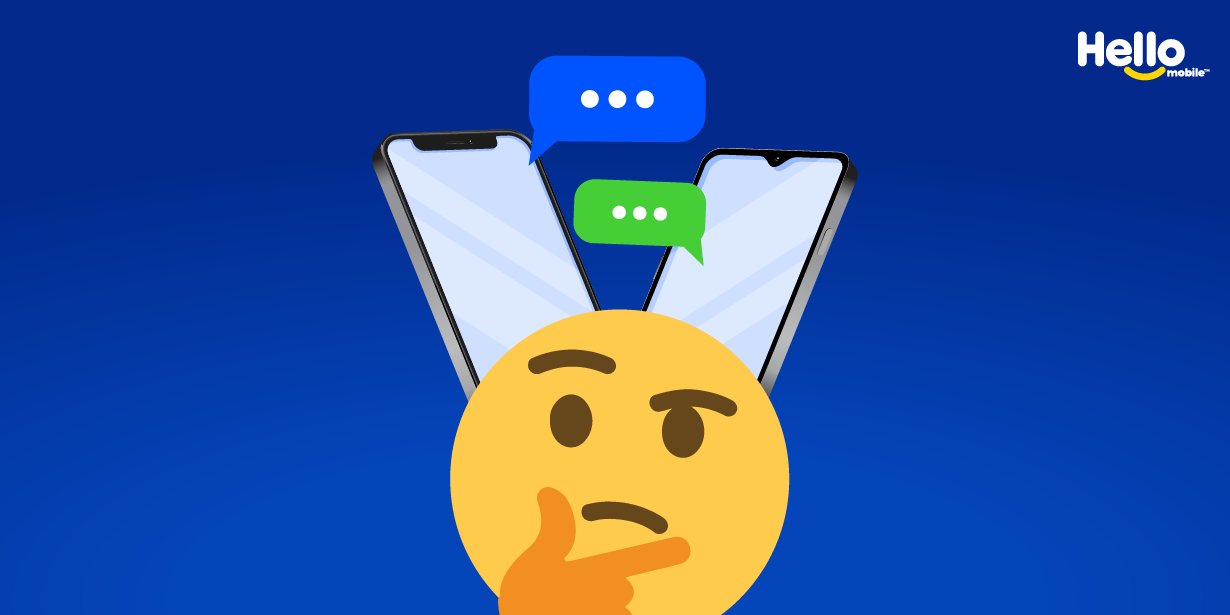
Welcome to the ultimate battle of smartphones: iPhone vs. Android: Pros and Cons. When it comes to choosing a smartphone, the decision often comes down to two main options: iPhone or Android. Whether you’re in the market for a new phone or just curious about the ongoing debate, you’ve come to the right place. Before committing, it’s important to explore the pros and cons of both iPhone and Android phones, everything from design and user interface to app availability and pricing.
As the two most popular phone systems in the world, the iPhone and Android have been in competition for years, each offering unique features and benefits to attract and retain users.
By the end of this article, you’ll have a better understanding of the strengths and weaknesses of both platforms, helping you make an informed decision about which device is right for you. So, without further ado, let’s dive into the iPhone vs. Android pros and cons – ready?
Apple vs. Android: A History
The first smartphone, Simon Personal Communicator, debuted in 1992 with primitive features such as a touch screen, calendar, contact book, and notepad; by 1999, BlackBerry was the first smartphone to have email.
Though the history of Apple vs. Android can be traced back to the early 2000s when Apple introduced the first iPhone in 2007. This groundbreaking device revolutionized how we interacted with mobile technology – setting the stage for a new era of smartphones.
Android, on the other hand, was first introduced in 2008 by Google. Unlike Apple, Android was an open-source operating system, which meant that anyone could use it and modify it according to their needs — this gave Android a huge advantage in terms of customization and flexibility.
In the following years, both Apple and Android continued to innovate and develop their platforms, releasing new versions of their operating systems (OS) with improved features and functionality. Apple’s iOS became known for its sleek design and intuitive user interface, while Android was praised for its flexibility and open-source nature.
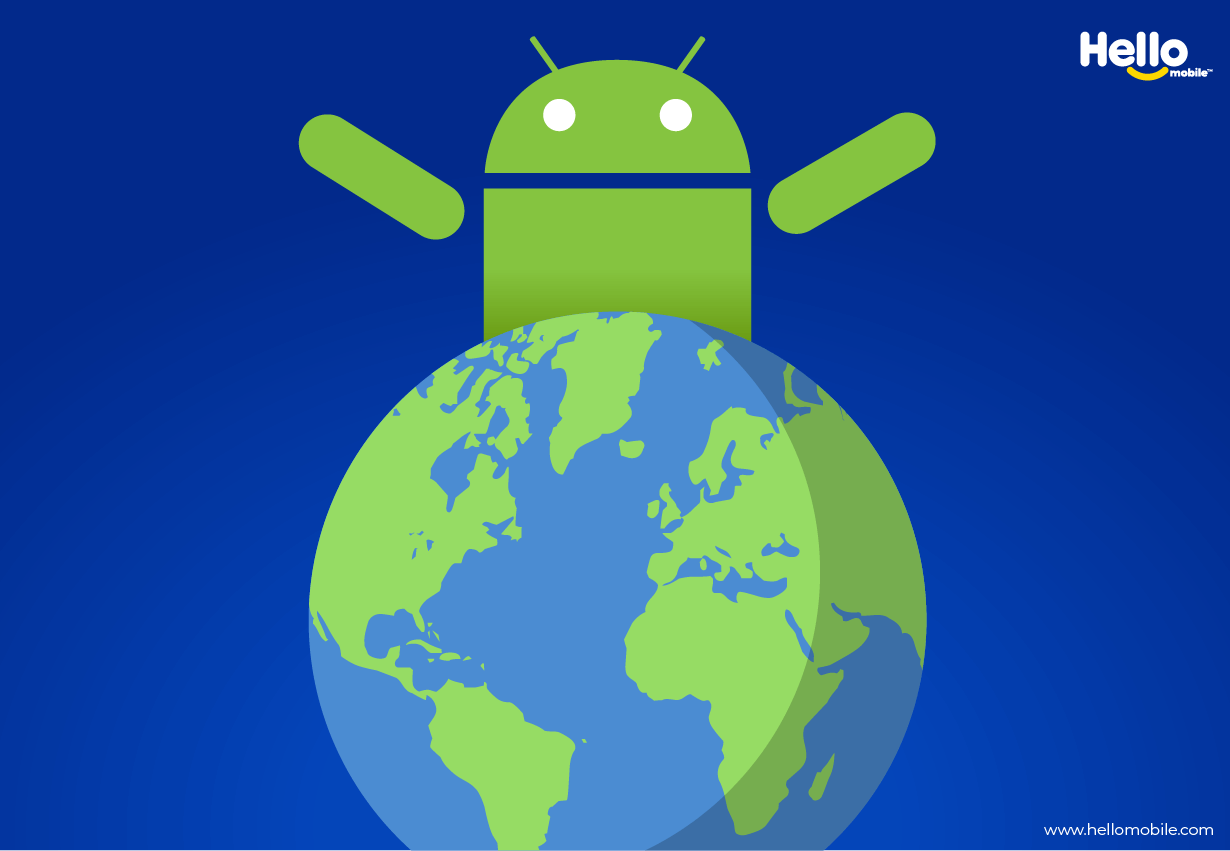
Why is Android More Popular Globally While iOS Dominates the US?
It’s a tale of two OS: Android OS dominates the global smartphone market with popular Android phones such as Google Pixel and Samsung Galaxy, while iOS holds a firm grip on the US – but why?
What’s behind this divide, and why do Android and iOS have such different levels of popularity in different regions of the world if it’s just a mobile phone?
To answer that question, we need to look at a few key factors:
- Price: One of the biggest factors behind Android’s global popularity is its affordability. Android devices are available at a wide range of price points, from budget phones to high-end flagships. In countries with lower average incomes, this makes Android a more accessible option for many consumers.
- Customization: Another key advantage of Android is its flexibility and customization. Android users have more freedom to personalize their devices, from choosing their default apps to customizing their home screen layouts.
- Market share: According to recent statistics, Android holds a commanding 72.9% share of the global smartphone market, while iOS trails behind at 26.9%. However, in the US, iOS holds a much larger market share, with a 60.5% share compared to Android’s 38.2%.
- Ecosystem: Another factor behind iOS’s popularity in the US is its tightly integrated ecosystem of hardware, software, and services. For many users, this seamless integration between devices and services is a major selling point of the iOS platform.
While there are many factors that contribute to the popularity of Android and iOS in different regions of the world, one thing is clear: both operating systems have had a profound impact on the way we use and interact with our smartphones.
Whether you’re an Android or iOS user, there’s no denying the incredible technological advancements that these two platforms have brought to the table.
iPhone vs. Android: Why iPhone is Better?
With the big debate on who is better, it always comes down to the audience and what you, as a user, prefer. Nonetheless, when it comes down to it, there are several reasons why the iPhone comes out on top.
Already know you want an iPhone? Check out our shop that lets you finance your phone through Affirm!
Apple’s Pros: Ecosystem, Design, Security, and Support
Ecosystem
Apple’s ecosystem is vast, with a range of products and services that work seamlessly together. This includes Airdrop, Handoff, and Continuity features that allow users to seamlessly transition between devices, as well as iCloud storage and syncing – meaning just with one click, you can have access to either device.
Design
Apple’s products are known for their sleek and modern design, which sets them apart from other tech brands. This includes the iPhone’s signature rounded edges, Mac’s minimalist aesthetic, and the Apple Watch’s customizable watch faces.
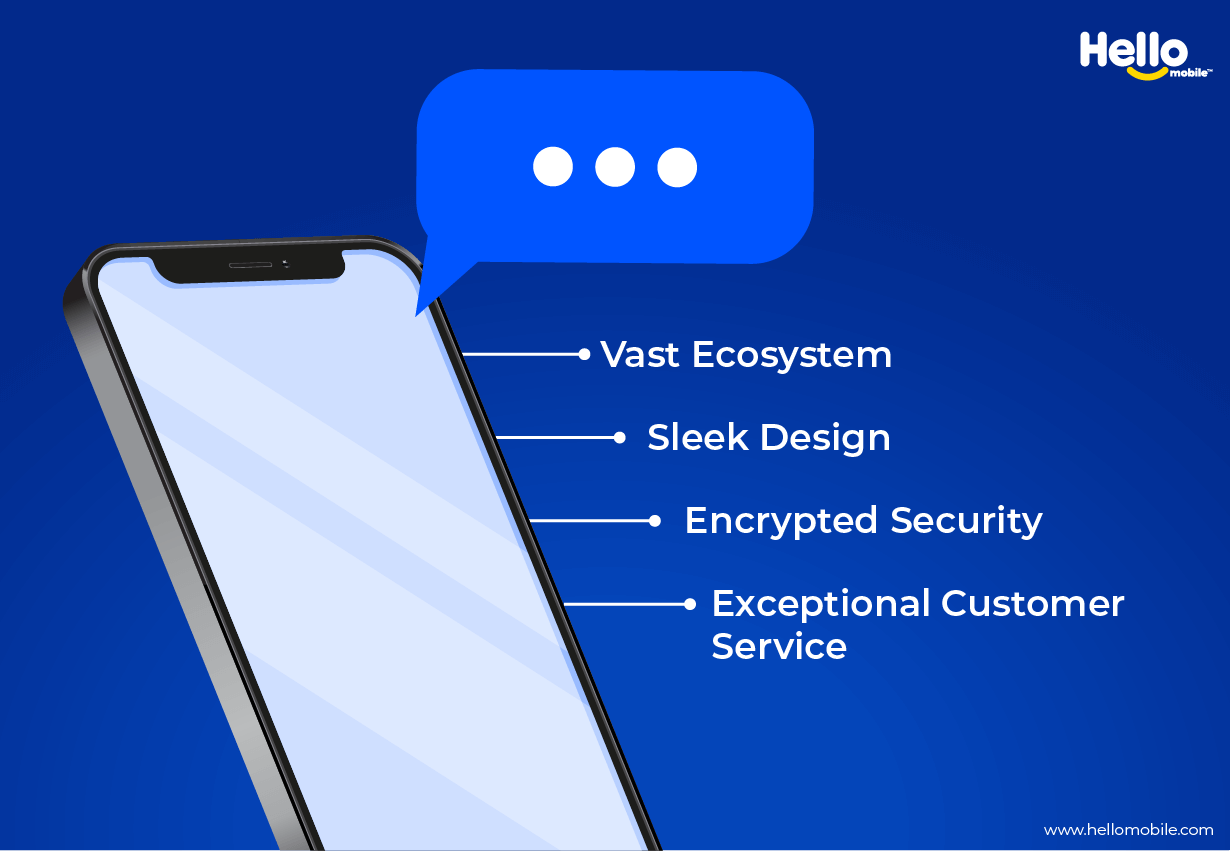
Security
Apple devices are known for their strong security measures, which include Face ID, Touch ID, and encrypted messaging. Not to mention, Apple’s regular updates ensure that devices are protected against the latest threats and vulnerabilities. Apple’s closed ecosystem also makes it more difficult for malware and viruses to infect devices.
Additionally, the App Store offers a wide range of apps that are designed specifically for Apple devices – with additional safety features.
Support
No matter whom you ask, Apple offers exceptional customer support, with a range of services that include AppleCare, the Genius Bar, and online support forums. With either of these, you don’t have to worry about your phone getting damaged or stop working. Additionally, Apple’s products are known for their durability and longevity, which means that users can rely on their devices for years to come.
You know what else has amazing customer service? Hello Mobile’s phone plan! You can get one as low as $5 with UNLIMITED Talk & Text, but if you know you need that UNLIMITED all-in deal, then get Hello Mobile’s $25/Mo per line with UNLIMITED Data, Talk & Text.
User Experience
One of the main advantages of iPhones is their user experience – Apple is known for creating products that are intuitive, user-friendly, and aesthetically pleasing, and this applies to its iPhones as well. The iOS operating system is designed to be simple and easy to use, with a clean and consistent interface across all of its devices. This makes it easy for users to navigate, find what they’re looking for, and get things done quickly and efficiently.
In short, here are the main user experiences for iPhones:
- iPhones offer an intuitive and user-friendly experience, with a clean and consistent interface across all devices.
- The iOS operating system is designed to be simple and easy to use, making it easy for users to navigate, find what they’re looking for, and get things done quickly and efficiently.
- Apple’s ecosystem and features like AirDrop, Handoff, and iCloud storage make it easy for users to switch between devices and access their data seamlessly.
- The user experience of iPhones is a major selling point for users who prioritize ease of use and convenience in their technology.
- These factors contribute to an overall positive user experience for iPhone users, which can lead to greater satisfaction and loyalty to the brand.
Exclusive Features
Some other notable features of Apple devices include:
- A-series chips: Apple’s custom-designed chips offer exceptional performance and efficiency, which makes them ideal for running demanding apps and multitasking.
- Retina displays: Apple’s high-resolution displays offer vivid colors and sharp detail, which makes them ideal for multimedia content.
- Cameras: Apple’s devices are known for their high-quality cameras, which include advanced features like Night Mode and Portrait Mode.
- Battery life: Apple devices typically offer long life, which means that users can go longer between charges.
- AirDrop: Easily share files between devices without needing to connect to the same Wi-Fi network or a third-party app.
- Continuity: Seamless integration between devices, such as using an iPad or Apple Watch to make or receive phone calls from an iPhone.
- iMessage: Apple’s messaging app allows users to send and receive messages, photos, and videos over Wi-Fi or cellular data without using SMS. It also includes features like group messaging, read receipts, and the ability to send effects like animations or handwritten notes.
- AirPods: Apple’s wireless earbuds offer seamless integration with its devices, with features like automatic pairing and switching between devices and the ability to use Siri hands-free.
- Siri: Apple’s voice assistant can be used for a variety of tasks, from setting reminders and sending messages to controlling smart home devices and answering questions.
Did you know that Hello Mobile has a $5 UNLIMITED Talk and Text plan that’s perfect for kids and teens?
Apple’s Cons: Expensive, Proprietary, and Limited Storage
Certainly, with everything good, there are also bad and, therefore, several cons.
Expensive
Apple’s products are often more expensive than their competitors, particularly for higher-end models with more storage or features. This can make it difficult for some consumers to justify the cost, particularly if they don’t need the latest and greatest technology.
Proprietary
Apple’s closed ecosystem can also be a disadvantage for some users, particularly those who prefer to customize their devices or use third-party apps or accessories. Apple’s devices often require proprietary cables or adapters and are not always compatible with non-Apple products.
Limited Storage
While iCloud storage and syncing can be a convenient feature for some users, Apple’s devices often have limited onboard storage compared to their competitors. This can make it difficult for users who want to store large files or media libraries on their devices without relying on cloud storage.
Limited Customization
Apple’s devices are known for their sleek design, but this can also be a disadvantage for those who prefer to customize their devices with different themes, layouts, or wallpapers. iPhones also have limited options for customization compared to Android smartphones.
No Expandable Storage
Unlike some Android devices, iPhones do not have a slot for expandable storage, such as an SD card. This means that users are limited to the amount of storage available on their devices and may need to rely more on cloud storage.
No Headphone Jack
Since the release of the iPhone 7, Apple has removed the traditional headphone jack from its devices. This means that users need to use wireless headphones or a Lightning-to-headphone-jack adapter to listen to music with wired headphones.
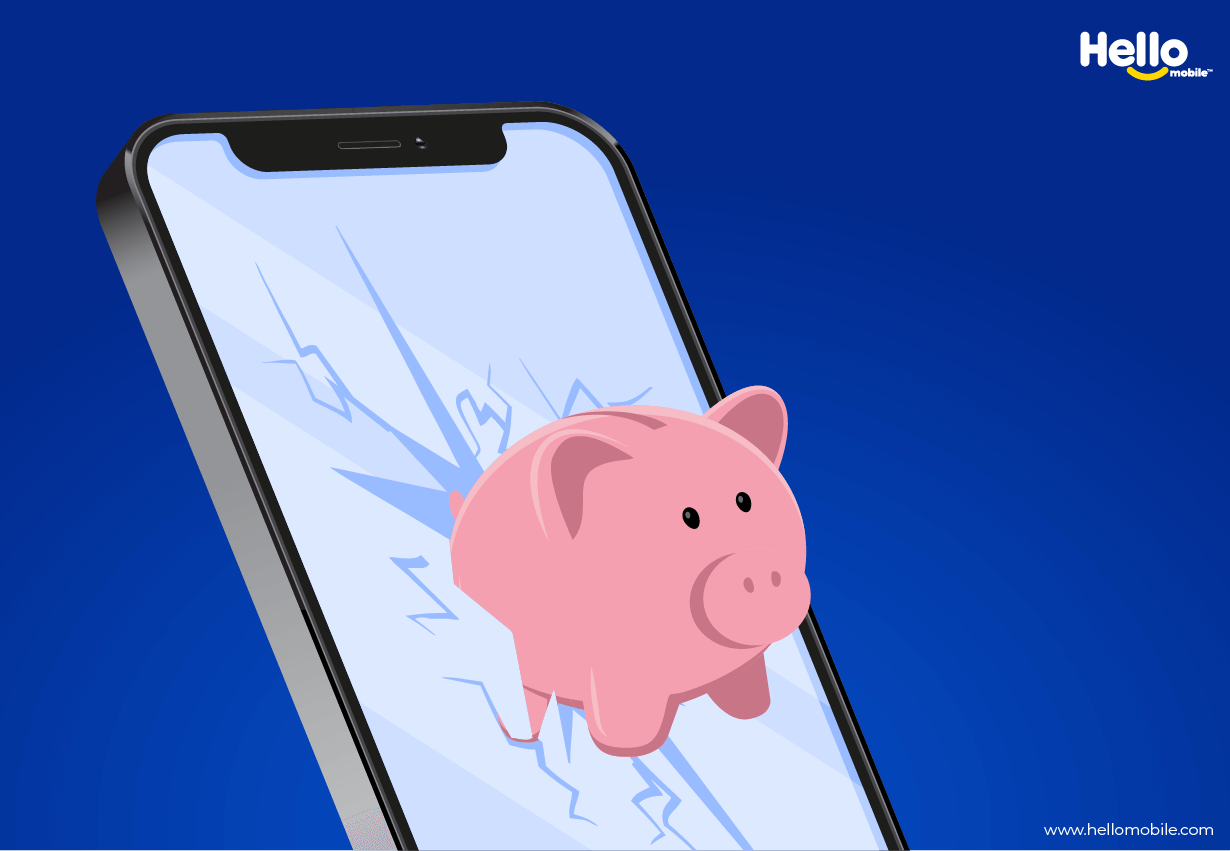
iPhone vs Android: Why Android is better?
While Apple has certainly cornered a large portion of the market, many argue that Android is actually the superior choice. Android offers a more customizable user experience, a wider range of device options at various price points, and better integration with Google’s suite of apps and services – something many people enjoy much more.
The beauty of having options is not only there with phones but also with phone plans. This is one of the many reasons why Hello Mobile developed phone plans that will fit any and every budget and needs without breaking the bank. Check out Hello Mobile’s UNLIMITED Data, Talk & Text for only $25/Mo per line!
Android’s Pros: Customization, Affordability, Ecosystem, Storage, Security, and Availability
Customization
One of the main advantages of Android devices is their flexibility and customization options. Unlike iPhones, which have limited customization options, Android devices allow users to customize everything from the home screen to the lock screen, widgets, and more. Users can also download and use third-party launchers to completely change the look and feel of their devices.
Affordability
Android devices are often more affordable than their iPhone counterparts, particularly for budget or mid-range models. This makes Android devices more accessible to a wider range of users, particularly those who don’t need the latest and greatest technology.
Open ecosystem
Android’s open ecosystem is another advantage for users who prefer more flexibility in their devices. Android devices are compatible with a wider range of accessories, and users can also download and use third-party apps that are not available on the Google App Store.
Expandable storage
Unlike iPhones, many Android devices have a slot for expandable storage, such as an SD card. This allows users to easily increase the amount of storage available on their devices without relying on cloud storage.
Larger variety of devices:
Android devices are made by a wide range of manufacturers, which means there is a larger variety of devices available to choose from. This can make it easier for users to find a device that fits their specific needs and preferences, whether that’s a larger screen size, longer battery lifespan, or a certain feature or spec.
Security
Android has made significant strides in recent years to improve its security features, with regular security updates and features like Google Play Protect, which scans apps for malware and other security risks.
Support
Android is supported by a large community of developers and enthusiasts who provide regular updates, custom ROMs, and other enhancements to improve the user experience. With devices from a wide range of manufacturers, users can choose from a diverse selection of devices at different price points, ensuring that there is an Android device for everyone.
User Experience
Androids offer a user experience that is highly customizable, which is one of the platform’s strengths. Users can personalize their Android devices with widgets, launchers, and other customization to create a unique user interface. Android also offers a wider range of devices at varying price points, making it accessible to more users. Additionally, Android integrates seamlessly with Google’s suite of apps and services, which many users find convenient. Overall, Android offers a flexible and customizable user experience that can meet the needs of a broad range of users.
In short:
- Android’s user experience is highly customizable, allowing users to personalize their devices with widgets, launchers, and other customizations.
- Android offers a wide range of devices at varying price points, making it accessible to more users.
- Android integrates seamlessly with Google’s suite of apps and services, which many users find convenient.
- Android’s flexibility and customization options allow it to meet the needs of a broad range of users.
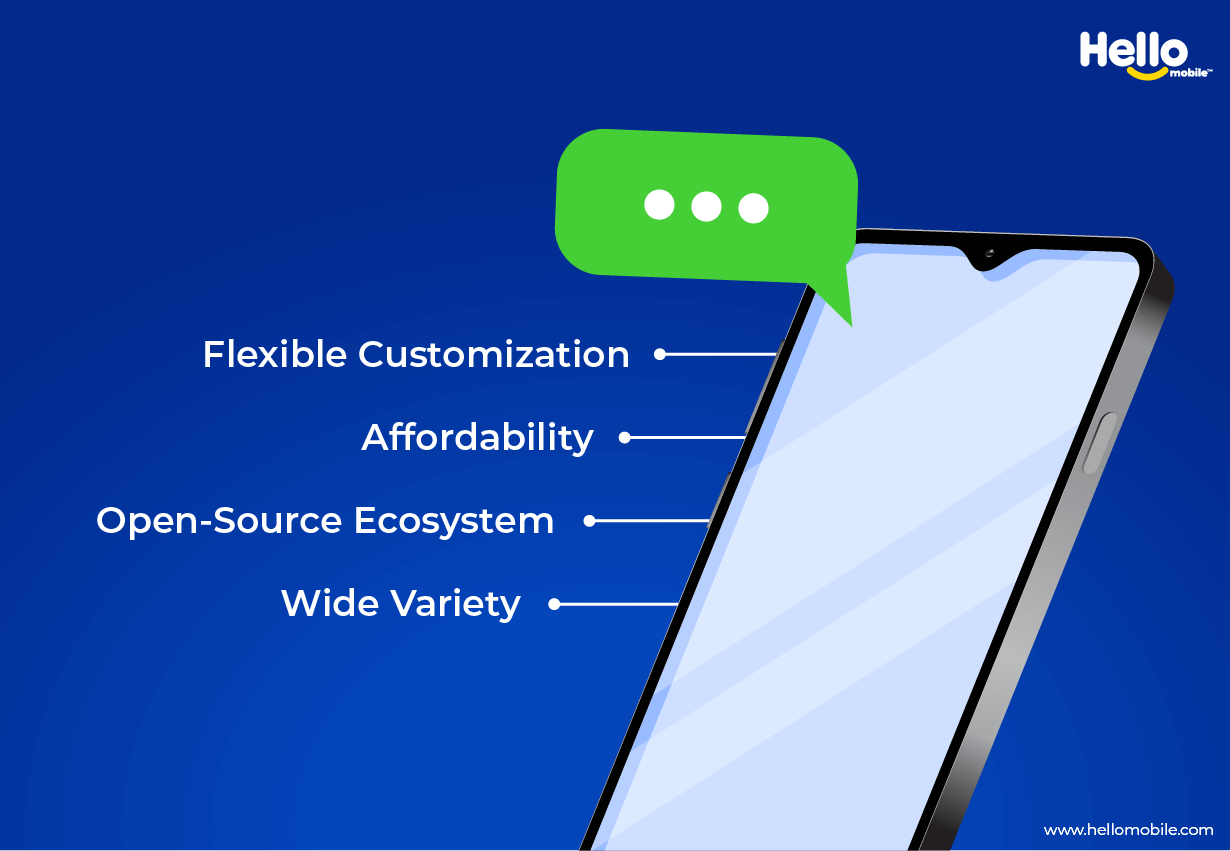
Android’s accessibility to a wide range of users is due to its customizable user experience, integration with Google’s apps and services, and flexibility to meet the needs of diverse users.
Exclusive features
In terms of technical specifications, Android devices typically offer a range of features and capabilities, including:
- Design: Android offers a modern and flexible design language that allows manufacturers and users to customize the user interface to suit their preferences. With features like live wallpapers, custom launchers, and theming options, Android offers unparalleled flexibility and personalization.
- Processor: Most Android devices are powered by processors from companies like Qualcomm, MediaTek, or Samsung, with performance ranging from entry-level to flagship-level.
- Memory: Android devices typically come with 4GB to 8GB of RAM, although some flagship devices offer up to 12GB or more.
- Storage: Android devices usually come with 64GB to 128GB of storage, although some devices offer expandable storage via microSD cards.
- Display: Android devices offer a wide range of display sizes and resolutions, from small 5-inch screens to large 6.7-inch or larger displays with resolutions up to 4K.
- Camera: Android devices often feature high-quality camera systems with multiple lenses, image stabilization, and other features like night mode and HDR.
Hello Mobile’s exclusive feature is having access to nationwide coverage with FREE International calling and total online support.
Android’s Cons: Bloatware, Vulnerability to Malware, and Fragmentation
Android smartphones are the most widely used mobile operating system with their own set of cons.
Bloatware
Android devices often come with pre-installed apps that cannot be removed, taking up valuable storage space and affecting performance. Some apps may even pose a security risk.
Malware Vulnerability
Due to Android’s open-source nature, it is more vulnerable to malware attacks than iOS. Malicious actors can exploit vulnerabilities in the operating system and apps, potentially stealing personal data or taking control of the device.
Fragmentation
The use of multiple versions of Android’s operating system on different devices can lead to inconsistencies in performance and user experience, making it difficult for developers to create apps that work seamlessly across all devices. With so many different versions of the operating system in use, it can be challenging for developers to create apps that work consistently across all devices. This can result in a fragmented user experience and may make it more difficult to find high-quality apps that work well on a specific device.
Battery Life
Many Android devices have relatively short battery lifespans, especially with heavy use. This can be frustrating for users who need their phones to last throughout the day.
Software Updates
Unlike iOS, which typically receives updates across all devices at the same time, Android updates can be slow to roll out and may not be available for all devices. This can leave users with outdated software that lacks the latest features and security patches.
Customization
While some users enjoy the ability to customize their Android phone’s user interface and install third-party apps, this can also be a disadvantage for others. Customizations can sometimes cause issues with stability and performance, and some third-party apps may be of lower quality or pose a security risk.
Advertisements
Some Android apps, particularly free ones, can be ad-supported, which can be annoying for users. Advertisements can take up valuable screen space, slow down performance, and even compromise user privacy if they collect personal data.
Security Risks from Side-Loading
Android devices allow users to install apps from sources other than the Google App Store, known as side-loading. While this can be useful for accessing apps that are not available on the Play Store, it also poses a security risk. Side-loaded apps may contain malware or other security threats, and users may not know the origin or safety of the app they are installing.
Inconsistent User Experience
Because Android is an open-source platform, device manufacturers are free to customize the operating system to their liking. This can result in inconsistencies in the user experience between different devices, even if they are running the same version of Android. For example, some devices may have different navigation buttons or a different default browser or messaging app, making it difficult for users to adapt to different devices.
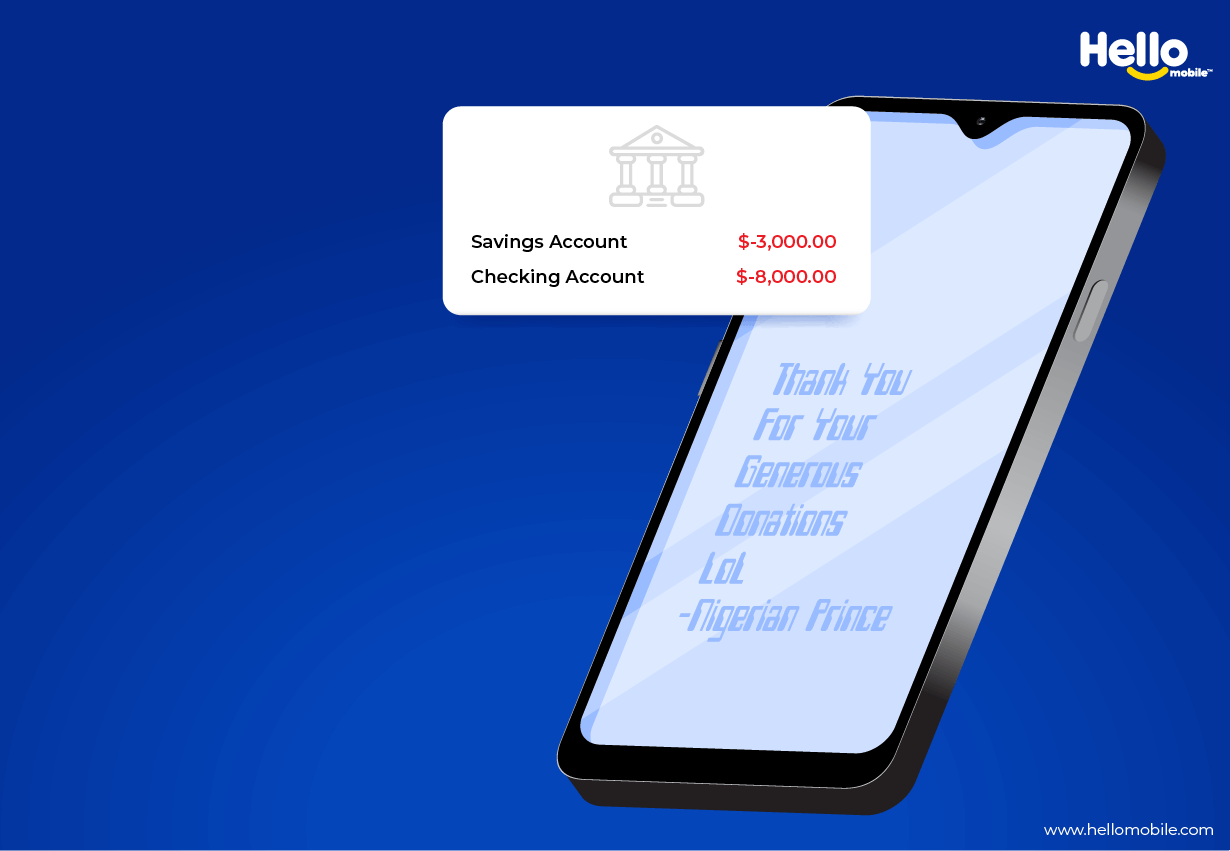
iPhone vs. Android: Pros and Cons – Which One Should You Choose Though?
When it comes to choosing between iPhone and Android, there is no one-size-fits-all answer. Each platform has its strengths and weaknesses, and ultimately, the decision comes down to personal preference and priorities.
If you value:
- Customization – especially if you have tech knowledge
- Affordability
- More variability in devices and brands
- Integration with Google Play
- The best camera on the market
Android phones may be the better choice for you.
On the other hand, if you prioritize:
- A seamless user experience
- High-quality hardware and design
- Security updates
- Security-optimized App Store
- Access to Apple’s exclusive features and services
an iPhone may be the way to go.
Hey Hey, if you love having affordable options, check out our handy-dandy savings quiz that will lead you to phone plans that will truly fulfill all your needs.
It’s important to weigh the pros and cons of each platform and consider your individual needs and preferences before making a decision. Ultimately, both iPhone and Android have loyal fan bases and offer unique features that can enhance your mobile experience.
So, which one are you going for?
P.S. if you’re unsure what phone plan is the best for you and your needs, check out our guide here!






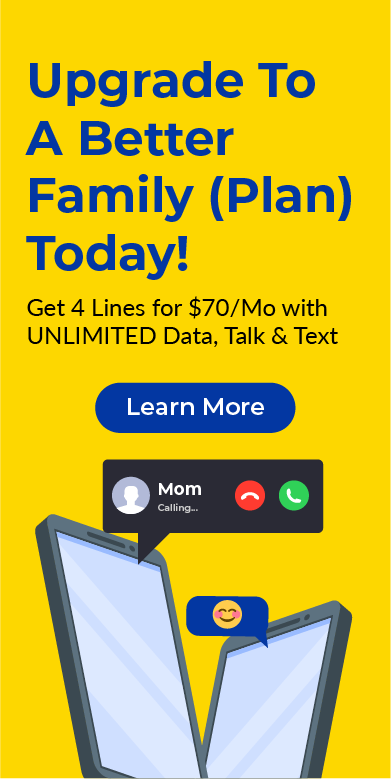
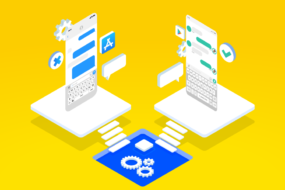
2 replies on “iPhone vs. Android: Pros and Cons of the Smartphone Wars”
I just can’t put the sim card in the slot
this sounds so frustrating! We have another article on SIM Cards specifically, otherwise, please contact customer service at 1 (888) 95-HELLO or 1 (888) 954-3556! 🙂